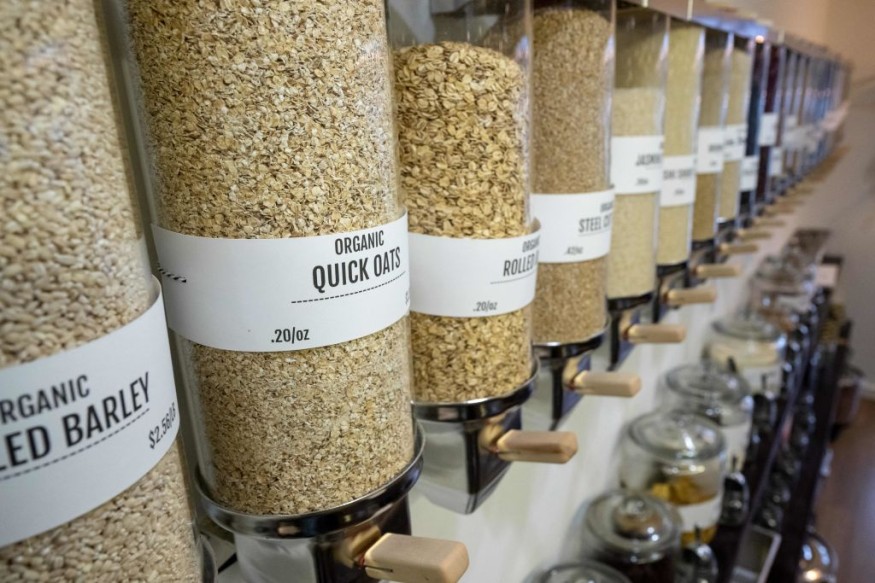Gone are the days of sprawling pastures and crowded feedlots dominating our landscapes. Scientists in Finland have unveiled a revolutionary new frontier in food production: harnessing the power of microbes and thin air.
This groundbreaking technology, spearheaded by the company Solar Foods, has the potential to transform the agricultural industry, ushering in an era of unparalleled sustainability and efficiency.
Farming the Air: A Breathtaking Leap in Food Science

Solar Foods' groundbreaking technique centers on harnessing the metabolic prowess of single-cell microbes. These microscopic powerhouses, often bacteria or yeast, are cultivated in tightly controlled bioreactors.
Imagine a series of stainless steel tanks, meticulously monitored and adjusted to create the perfect environment for microbial growth. Inside these bioreactors, the microbes are bathed in a carefully formulated nutrient broth, a recipe constantly being refined to optimize both yield and nutritional content.
The magic, however, lies in the air. Unlike traditional agriculture reliant on sunshine and rain, Solar Foods' technology utilizes the very air we breathe.
Air, a seemingly unremarkable mixture of gases, is cleverly split using a process called electrolysis.
This separates the nitrogen and oxygen, providing the essential building blocks for the microbes to synthesize proteins. But the microbes need energy to perform this feat.
Here's where the magic truly unfolds. Solar Foods leverages renewable energy sources like solar or wind power to provide the electricity that fuels the microbes' growth. Through a fermentation process similar to what produces yogurt or beer, the microbes rapidly multiply, producing a protein-rich powder called Solein.
This unassuming powder boasts an impressive nutritional profile. Solein contains all nine essential amino acids, the building blocks of protein, making it a viable substitute for meat, dairy, and eggs.
It's also a good source of vitamins, minerals, and fiber, offering a complete and balanced nutritional package.
The environmental benefits of Solein production are truly revolutionary. Traditional livestock farming casts a long shadow on our planet.
Animals raised for food are major contributors to greenhouse gas emissions, with methane, a potent greenhouse gas, released through their digestive processes.
Additionally, deforestation to create grazing land further contributes to climate change. Solar Foods' technology disrupts this paradigm.
The production process requires minimal land and water, making it ideal for regions struggling with resource scarcity.
Deserts, once considered barren wastelands for food production, could potentially become hubs for Solein production.
Moreover, the bioreactors' reliance on renewable energy sources further minimizes the environmental footprint.
A Brighter Future for Food Security: From Scarcity to Abundance
The development of air-based food presents a beacon of hope in the fight against global hunger. Solein's versatility and extended shelf life make it a perfect solution for areas with limited access to fresh produce.
Unlike fruits and vegetables, Solein doesn't spoil easily. It can be stored for long periods without refrigeration, making it ideal for transportation to remote areas or for stockpiling in case of emergencies.
Imagine humanitarian aid missions delivering not just basic staples but a complete and nutritious food source that can withstand harsh conditions.
The production process is also inherently scalable. Solar Foods' current production facility in Finland is a pilot plant, a stepping stone on the path to a more substantial future.
The company is already planning to build a much larger plant, exponentially increasing production capacity. This scalability is crucial for meeting the growing demand for food as the global population continues to rise.
Experts predict that the global population will reach 10 billion by 2050, placing immense pressure on our current food systems. Solein offers a potential solution, a way to ensure food security for generations to come.
Beyond its potential to address global hunger, Solein has the potential to revolutionize the food industry. The bland, beige powder might seem unappetizing at first glance.
Furthermore, Solein can be flavored and textured to mimic a variety of familiar foods. This could pave the way for a new generation of plant-based meat alternatives that are more realistic and appealing to consumers, potentially shifting dietary habits towards a more sustainable future.
Solar Foods is currently awaiting regulatory approval from the European Union to sell Solein commercially. This approval process is crucial, ensuring the safety and quality of this innovative food source.
However, with successful approval, this revolutionary technology has the potential to reshape our food systems, paving the way for a more sustainable and equitable future.
Air-based food may usher in an era where food security is no longer a distant dream, but a tangible reality, accessible to all corners of the globe. The future of food is taking flight, quite literally, with the potential to nourish our planet for generations to come.
Related article: Fungi-Based Food Innovation Promises Meaty Flavors Without the Mea
© 2025 NatureWorldNews.com All rights reserved. Do not reproduce without permission.





